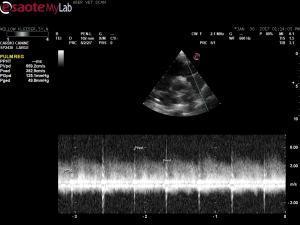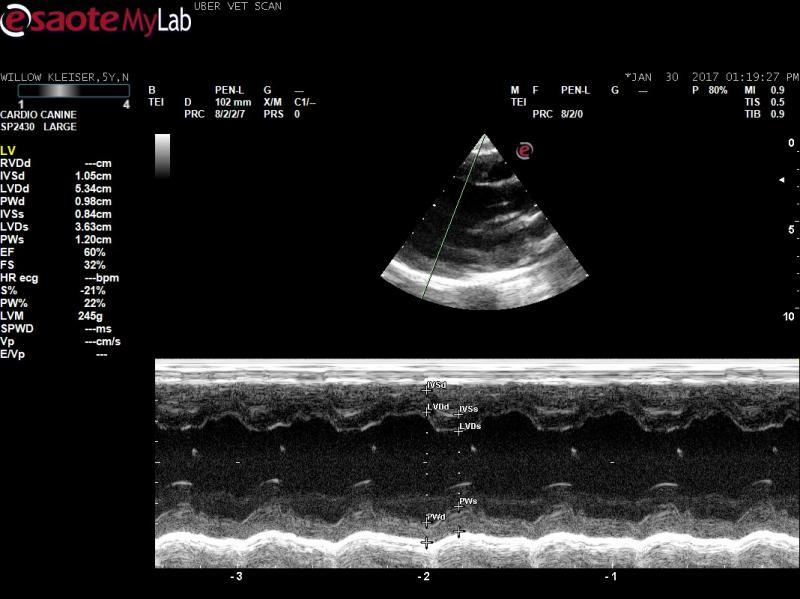– 5 month old MN Shephard x with history of a heart murmur since rescued; continuous murmur on ausculatation otherwise asymptomatic for heart disease
– echo consistent with a PDA, LV dilation in diastole and systole; LA normal to midly enlarged
– I am also getting an increased aortic max velocity and AI
I am wondering is this is indicating mild aortic stenosis or is this somehow related to the PDA? This one is being referred to a cardiologist.
– 5 month old MN Shephard x with history of a heart murmur since rescued; continuous murmur on ausculatation otherwise asymptomatic for heart disease
– echo consistent with a PDA, LV dilation in diastole and systole; LA normal to midly enlarged
– I am also getting an increased aortic max velocity and AI
I am wondering is this is indicating mild aortic stenosis or is this somehow related to the PDA? This one is being referred to a cardiologist.



Comments
hi!
Basically, an increased
hi!
Basically, an increased vmax across the LVOT is typical of a PDA with left ventricular volume overload (hemodynamic significance). This is because the increased left ventricular volume has to leave the heart via a LVOT and aortic valve of normal size – consequently, the vmax has to increase. This is a so-called pseudo-stenosis. Or the other way around: If you see a PDA with volume overload and an increase in aortic vmax, the PDA is likely a large one.
If you want to differentiate pseudo-stenosis from real stenosis you need to consider the following points:
.) Is there a pathophysiology that could explain the pseudo-stenosis?
.) Is there a visible stenosis?
.) Put the PW- sample-gate below the AV then above the AV. If the local difference in peak velocity exceeds 0.5 m/s then a true stenosis is likely.
The aortic regurigation is not typical of a PDA or pseudo-stenosis. This needs further evaluation (dysplasia?, additional VSD? (inflammation?), some contributing SAS).
Peter
Thank-you Peter! Good to know
Thank-you Peter! Good to know and a good one to go see a cardiologist.
Jacquie